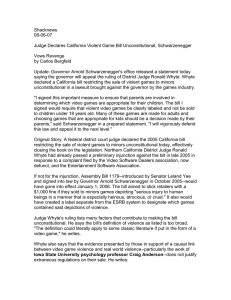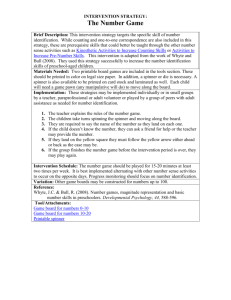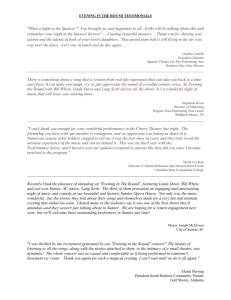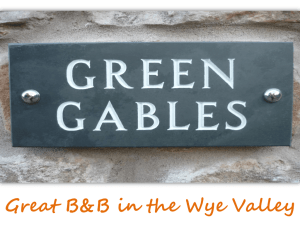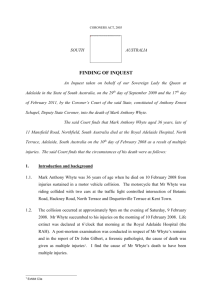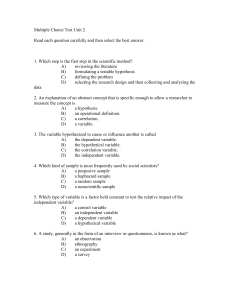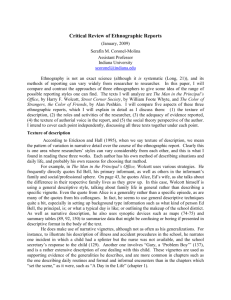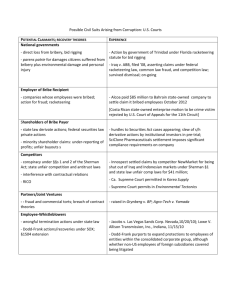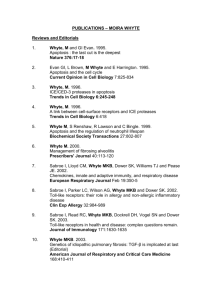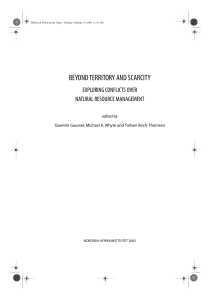Street Corner Society by William Foote Whyte
advertisement
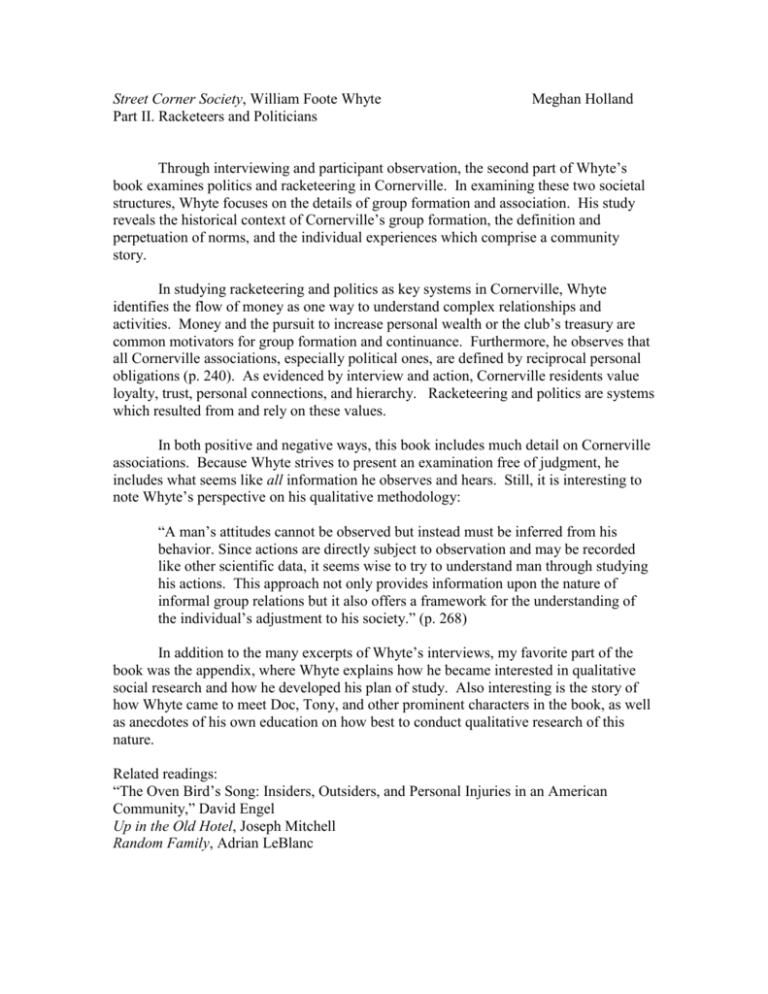
Street Corner Society, William Foote Whyte Part II. Racketeers and Politicians Meghan Holland Through interviewing and participant observation, the second part of Whyte’s book examines politics and racketeering in Cornerville. In examining these two societal structures, Whyte focuses on the details of group formation and association. His study reveals the historical context of Cornerville’s group formation, the definition and perpetuation of norms, and the individual experiences which comprise a community story. In studying racketeering and politics as key systems in Cornerville, Whyte identifies the flow of money as one way to understand complex relationships and activities. Money and the pursuit to increase personal wealth or the club’s treasury are common motivators for group formation and continuance. Furthermore, he observes that all Cornerville associations, especially political ones, are defined by reciprocal personal obligations (p. 240). As evidenced by interview and action, Cornerville residents value loyalty, trust, personal connections, and hierarchy. Racketeering and politics are systems which resulted from and rely on these values. In both positive and negative ways, this book includes much detail on Cornerville associations. Because Whyte strives to present an examination free of judgment, he includes what seems like all information he observes and hears. Still, it is interesting to note Whyte’s perspective on his qualitative methodology: “A man’s attitudes cannot be observed but instead must be inferred from his behavior. Since actions are directly subject to observation and may be recorded like other scientific data, it seems wise to try to understand man through studying his actions. This approach not only provides information upon the nature of informal group relations but it also offers a framework for the understanding of the individual’s adjustment to his society.” (p. 268) In addition to the many excerpts of Whyte’s interviews, my favorite part of the book was the appendix, where Whyte explains how he became interested in qualitative social research and how he developed his plan of study. Also interesting is the story of how Whyte came to meet Doc, Tony, and other prominent characters in the book, as well as anecdotes of his own education on how best to conduct qualitative research of this nature. Related readings: “The Oven Bird’s Song: Insiders, Outsiders, and Personal Injuries in an American Community,” David Engel Up in the Old Hotel, Joseph Mitchell Random Family, Adrian LeBlanc
